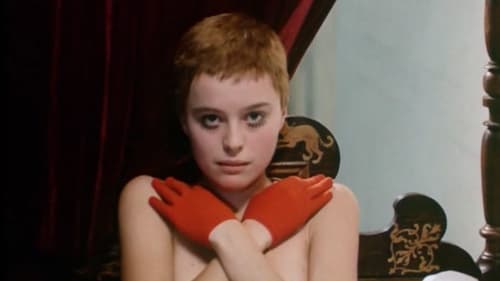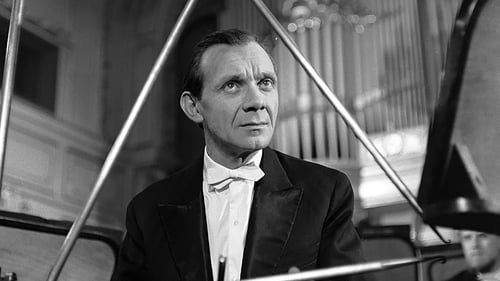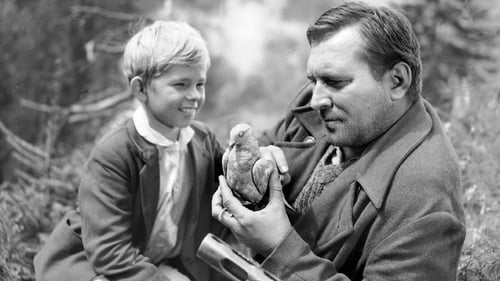Albert Marenčin
Nascimento : 1922-07-26, Bystré, Czechoslovakia [now Slovak Republic]

Documentary about Stefan Uher's film.

Dramaturgy
A segunda e, infelizmente, a última longa-metragem feita por um talento único entre cineastas eslovacos, Elo Havetta, é uma das imagens mais originais da cinematografia eslovaca. O filme foi concebido como uma paráfrase da prosa de Vincent Šikula, os episódios trágicos de que o guionista Lubor Dohnal e Havetta compuseram numa história dramática. As personagens principais são veteranos da Primeira Guerra Mundial que voltam para casa. E enquanto eles sentem a necessidade de encontrar uma casa e se acalmar, eles também são impulsionados por uma paixão pela vida livre de um vagabundo.

Dramaturgy

Dramaturgy
The film is a historic parable about the topicality of revolution. 1514. The peasants' uprising is over, Dózsa has been arrested. Werbőczy tries to get the imprisoned peasant leader deny the revolution and offers him the lives of his people in exchange.

Dramaturgy
Feito sob a sombra da invasão soviética na Tchecoslováquia em 1968, este clássico da 'New Wave' tcheca foi suprimido por mais de 20 anos, sendo liberado apenas em 1990. Este selvagem trabalho de vanguarda, retrata um mundo devastado pela guerra, incidindo sobre dois amigos que moram com um senhorio louco que deserdou a Igreja e acabam se envolvendo com uma linda jovem judia abandonada. Os três tentam criar um sentimento de família e de lar, cada um dedicado a reproduzir o tolo, como meio de se distanciarem do horrores que têm absorvido e da loucura do mundo que os rodeia.

Dramaturgy
A classical ballad motif about an aging father and his three daughters is quite unusually here set against the backdrop of Czechoslovakia of the 1950s. After having been expropriated, the former landowner Majda seeks refuge with his three daughters whom he had sent to a convent a long time ago. But only the youngest one is able to forgive him and she is willing to take care of him despite the threat of expulsion from the order.

Screenplay
In this bitingly satirical film Peter Slovan, a continuous source of trouble for the film functionaries of the socialist Slovakia, tackles an evergreen topic – the corruptive effects of power. Barnabáš Kos, a triangle player at a symphonic orchestra, is suddenly promoted to serve as the head of the said institution, even though both he and his superiors deem him completely unfit for the task. Encouraged in equal parts by this unexpected recognition and the servile praise of his colleagues, Kos’s modesty starts to gradually vanish. The erstwhile bashful and aloof percussionist quickly becomes aware of the advantages of his new office, and begins to realise his increasingly ludicrous artistic ambitions. Ultimately, the submissive marionette turns into a source of public humiliation, and his astonishing career finds an abrupt end. Orchestra serves here as a microcosm that grotesquely reflects the absurd and tragicomic mechanisms of the paranoid apparatus of power.

Dramaturgy
The Organ is a drama set in the times of the wartime Slovak State. A young Polish deserter and gifted organist finds shelter from the fascists in a Slovak Franciscan monastery. He gets into a conflict with the local organist and choir leader, a man limited in his world views and spiritual values. The collision of talent and beauty with pettiness and closed-mindedness leads to envy and ill will, which draw young Felix away from his temporary hiding place and back to the dangers of war.

Screenplay

Screenplay

Screenplay
An unusual children's film set during World War II in Czechoslovakia, this compelling drama unfolds five different segments that present the war through the eyes of three youngsters. The three have a series of adventures which include saving a soldier from being captured by the Germans, helping out the resistance fighters, and meeting up with a young Russian woman trained in guerrilla warfare. As they learn more about life and danger, various circumstances constantly recall the reality of war itself. The title comes from a wounded pigeon under the care of one of the youngsters.

Story
An unusual children's film set during World War II in Czechoslovakia, this compelling drama unfolds five different segments that present the war through the eyes of three youngsters. The three have a series of adventures which include saving a soldier from being captured by the Germans, helping out the resistance fighters, and meeting up with a young Russian woman trained in guerrilla warfare. As they learn more about life and danger, various circumstances constantly recall the reality of war itself. The title comes from a wounded pigeon under the care of one of the youngsters.

Writer

Screenplay







